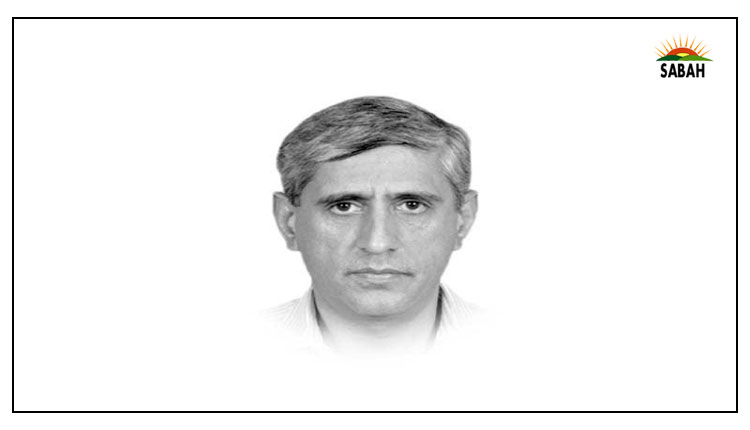Ram Mandir — a metaphor for intolerance ….. Dr Raashid Wali Janjua
A new India was proclaimed to the accompaniment of haunting strains of conch shell at Ayodhya where four centuries ago a Governor of Mughal Emperor Babur, Mir Baqi beheld an elevated plateau on the sun kissed dust bowl of Ayodhya. He commissioned a mosque at an uninhabited vantage point and dedicated its name to his emperor i.e. Babur. A beautiful mosque was built in the elegant yet unpretentious Turco-Persian architectural tradition with large domes and airy courtyards. For over four centuries the Muslims prayed in the mosque and it was only in 1822 that first claim was made by an obscure official in Faizabad court that the mosque was built on an ancient Hindu structure. In 1855 the Nirmohi Hindu sect, a forerunner of Hindu Mahasabha movement, used the above spurious statement to lay claim to the mosque as a Hindu worship site.
The communal riots in 1855 prompted the British government to intervene and erect a steel fence there to prevent any encroachment of the mosque premises by the fanatical Hindus. By then the outer courtyard of the mosque had an elevated plateau called chabutra which was regarded as the site of an ancient idol by Hindu clerics. The battle between the Nehruvian secularism and the Nathuram Godse’s Hindu fanaticism was raging in 1948 when Gandhi was assassinated by a Hindu extremist belonging to a fanatical Hindu organisation Rashtriya Swayemsevak Sangh (RSS) in January 1948. The assassination of a national icon whom Hindus across the political and sectarian divide revered as the Bapu (Father) of the nation evoked a backlash against the Hindu zealots of RSS and the organisation took a back seat in national politics ceding space to Nehru’s secular vision for India.
The Hindu fanatics of RSS, however, kept stewing in their juices of hatred and kept conspiring to wrest back the space lost to Nehru’s secularism. The instrument for this recrudescence of divisive communalism was a fanatic Hindu ascetic figure in Ayodhya i.e. Abhiram Das who was egged on by the RSS leadership to keep the Ayodhya issue alive. In the dead of a cold blustery night in Ayodhya on 22nd December 1949, Abhiram Das took a statue of Lord Rama and along with his fellow sadhus placed it inside the Babri Mosque. For RSS and its obscurantist Hindu devotees the placement of the idols inside the mosque was a religious coup to atone for the imagined sins of invaders who, as per the RSS revisionist narrative of a mythologised Hindu Ram Temple of prehistoric times, had removed a similar idol some four centuries ago.
Nehru’s government put a lid on the issue and took strong measures to prevent the Hindu fanatics from encroaching further on the mosque’s property. The phantasmagoric religious claim grounded in a mythologised past however was kept on a low simmer by RSS till 1980 when the perpetrator of original sin i.e. Abhiram Das died. His funeral cortege was taken in a religious procession to the Babri Mosque where his last rites were performed before committing his remains to the depths of River Suriya. A statement had been made by the RSS and its political front Bharatiya Janata Party (BJP) stoking the fires of Hindu-Muslim hatred to facilitate the rise of Hindu nationalism. A poltergeist like myth was woven to claim that the idol placed in the mosque surreptitiously by a conniving Hindu fanatic sadhu was in fact the rebirth of the Lord Ram himself at his janambhoomi (birthplace).
To the eternal shame and discredit of the Congress government of Narsimha Rao that caved in to the pressure of Hindu zealots and the BJP leaders like Lal Krishna Advani the slow build-up of a hate narrative against the historical Babri Mosque was not contested. Congress government remained an ineffective bystander while Advani led a rath yatra, a long countrywide procession, to muster support for building of Ram Temple in place of Babri Mosque. The Ram Mandir issue became a rallying cry for Hindu fanatics whose riled-up emotions were used to whip up communal frenzy for the electoral fortunes of BJP. A case was filed in the courts for building of Ram Temple citing the emergence of Lord Rama as an idol in Babri Mosque.
In 2009, Justice Manmohan Singh Liberhan Report found 68 people to be responsible for the demolition of the masjid which included Vajpayee, Advani, Joshi and Vijaya Raje Scindia, all BJP stalwarts. From 1992 onwards, it was a slow and painful struggle for the Muslims who fought tooth and nail to prevent the RSS and BJP from building a Temple on the demolished Mosque’s location. The slow march of Hindutva nationalism from 1992 onwards closed all options for Muslims and the final nail in the coffin was the Indian Supreme Court’s judgement in 2019 that permitted the Hindus to construct the Ram Mandir. A staggering amount of $215 million is being spent on the construction of the Mandir that would be completed by the end of the year.
PM Modi, however, could not wait till the end of the year as he wanted to encash the Hindu rightwing vote bank to win another term in office in April-May elections. Hundred commercial flights in addition to 44 chartered flights ferried the crème de la crème of India to the consecration ceremony of the Ram Mandir on 22nd January 2024. Despite the boycott of elections by Congress-led Indian National Developmental Inclusive Alliance (INDIA) and the protestations of INGOs like Hindus for Human Rights, PM Modi broke his eleven days’ fast and went ahead to inaugurate the Ram Mandir saying, “Our Lord Ram has arrived, even hundred years later people will be talking of this day”. Ayodhya is being billed as the new Vatican in an India where 145 million people live below the poverty line while 50% of the bottom rung of population holds 3% of the national wealth compared to the 5% elite that holds 60% of national wealth.
The message is clear. It is a Hindu India in which there is no place and respect for minorities unless they live as second rate citizens. The mythologised age of Rama and the Laws of Manu that consecrate an extravagant temple and the caste-based social inequality have finally come of age.
Courtesy The Express Tribune, January 27th, 2024.












